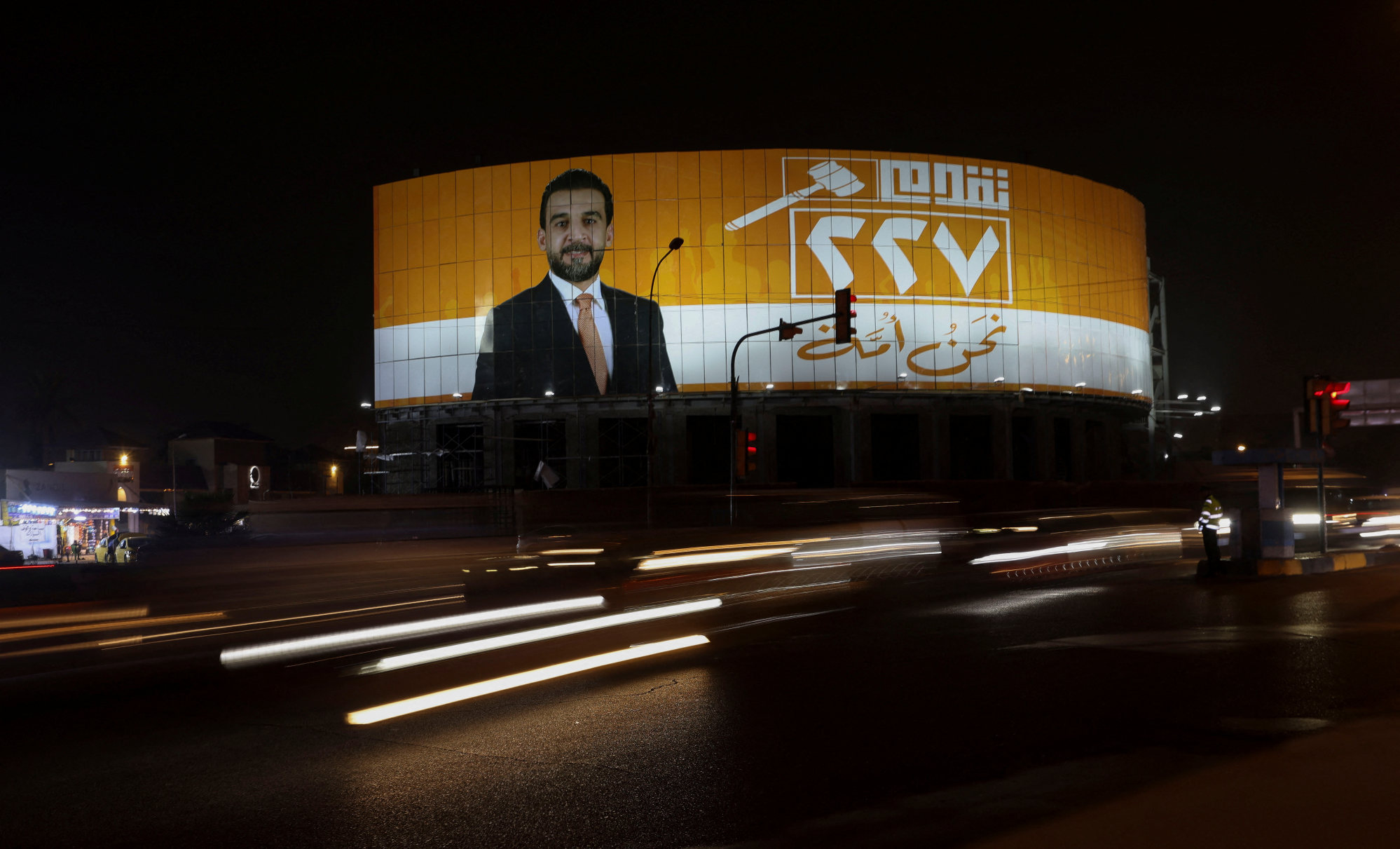Iraq’s top court dismisses powerful parliament speaker Mohammed Halbousi
The Iraqi Federal Supreme Court on Tuesday terminated parliament speaker Mohammed Halbousi’s tenure, state media said, in a shock decision that upends the career of Iraq’s most powerful Sunni Muslim politician and sets the stage for a fight over succession.
In a video shared by his media office, Halbousi said the decision was “strange” and implied that it violated the constitution and undermined national stability, though he did not elaborate.
“We are surprised by the issuance of such decisions, we are surprised by their lack of respect for the constitution,” he said.
State media said the decision, which is final and not subject to appeal, was related to a Federal Supreme Court case brought against Halbousi earlier this year, without elaborating.
Local media, lawmakers and analysts said the decision was related to alleged forgery on the part of Halbousi. Halbousi’s office could not be reached for comment.
Re-elected in 2021, Halbousi was serving his second term as speaker, a post he assumed in 2018 and which, under the sectarian power-sharing system established after the 2003 US invasion, is the highest office reserved for a Sunni Muslim.
Under the governing system in place since the post-Saddam Hussein constitution was adopted in 2005, the prime minister is a member of the Shiite Muslim majority, the speaker is a Sunni and the largely ceremonial role of president is held by a Kurd.
This sectarian formula has often come under heavy strain as a result of competing agendas and has divided the spoils of massive oil wealth between powerful factions while failing to prevent bloodshed or provide people with even basic services.
Blinken makes surprise visit to Iraq as Israel-Gaza war rages
Blinken makes surprise visit to Iraq as Israel-Gaza war rages
Halbousi, a 42-year-old engineer from western Iraq who worked as a US contractor after the invasion, cultivated good relations and made deals with powerful Shiite and Kurdish factions, who helped his rapid rise to power.
But more recently, he lost support within Iraq’s ruling Shiite alliance, the Coordination Framework (CF), after he tried to form a government with their opponents following 2021 parliamentary polls.
Though he ultimately joined the CF in government, the damage was done and he was seen as untrustworthy and as accumulating too much power due to his push to rally Sunnis who were politically divided since 2003 into a unified front, analysts say.
“The narrative around Halbousi is that he rose too quickly and made a lot of enemies in the process,” said Renad Mansour, director of the Iraq Initiative at London’s Chatham House think tank. “He has been punished by the central government through legal mechanisms because of this.”
“Weakened opponents put the ruling Shiite parties in a better position. They are in a better position when Sunnis or Kurds are divided and fighting internal disputes,” Mansour said.

Critics say Iraq’s judicial system is widely subject to political influence, though top judges say it is an independent branch of government.
Lawmakers had gathered for a regular parliamentary session and Halbousi was in the chamber at the time that the decision was issued but then exited, lawmaker Amer al-Fayiz said.
Deputy speaker Mohsen al-Mandalawi, a Shiite, takes over as interim speaker until a new speaker is elected.
Halbousi’s ousting comes just over a month before Iraq, one of the world’s youngest democracies, holds elections for provincial councils that last took place a decade ago.





